Healthcare
Explore Gallup's research.

Doctors are the top source for medical information, far outranking websites, AI and social media. But less than half turn exclusively to medical professionals.

Eight decades of polling offers important lessons about the kinds of healthcare reforms Americans are willing to support.

Twenty-nine percent of U.S. adults describe their mental health as excellent, down 14 points from 2019 and the first reading below 30%.

Concerns about and dissatisfaction with healthcare costs in the U.S. underscore Americans' belief that the nation's healthcare system is highly flawed.

Roughly four in 10 U.S. adults — equivalent to nearly 110 million Americans — doubt Medicare and Social Security will be available in 10 years, and a majority say benefit changes worry them more this year than last year.

Americans' approval of the Affordable Care Act has risen to a new high, fueled by increased support among political independents.

West Health and Gallup developed a system to rank all 50 states and D.C. based on residents' experiences with healthcare cost, quality and access.

New state rankings from West Health-Gallup reveal sizable differences in residents' experiences of healthcare cost, quality, and access and an urgent need for improvement in every U.S. state.

A new study reveals that half of Canadian pet owners (50%) say they skipped needed veterinary care for their pets in the past year.

The inaugural PetSmart Charities-Gallup study reveals that many U.S. pet owners express interest in nontraditional care options such as community clinics.

Discover the veterinary habits of pets and their parents, and the barriers that prevent pets from receiving necessary care.

A West Health and Gallup survey finds that 11% of U.S. adults are unable to pay for needed healthcare and prescribed medicine, marking a new high in a four-year trend.

After sliding over the past decade, Americans' reports of their own mental and physical health held steady last year at the lowest levels in Gallup's 24-year trend.

Twelve percent of Americans report borrowing an estimated $74 billion to pay for healthcare expenses last year. More than one-quarter (28%) report being "very concerned" that a major health event could put them in medical debt in the future.
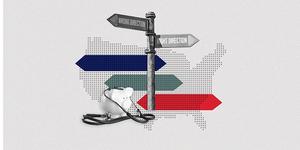
Americans are divided over President-elect Trump's policies for lowering healthcare costs. Views vary by political affiliation, but by two to one, independents think the policies take the U.S. in the wrong direction.
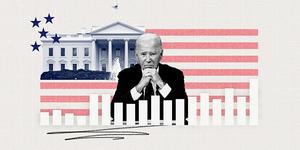
Americans rate the progress the U.S. has made during Biden's presidency as mostly negative across 18 economic, national and international areas.
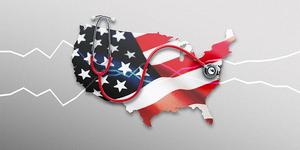
Americans' agreement that the federal government must ensure all Americans have healthcare coverage now exceeds 60%, after declining to as low as 42% during the years when the Affordable Care Act was being debated and implemented.
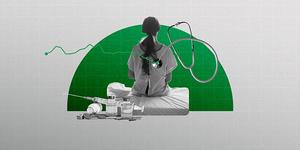
Americans' positive rating of the quality of healthcare in the U.S. has fallen to its lowest point in Gallup's trend dating back to 2001.

Seven in 10 Americans say they would prefer that primary care providers ask about both mental and physical health concerns during appointments.
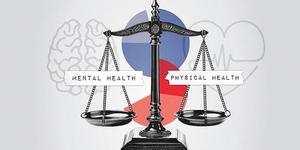
Nearly eight in 10 Americans, including majorities of Democrats and Republicans, favor a federal law requiring equal insurance coverage for mental and physical healthcare.